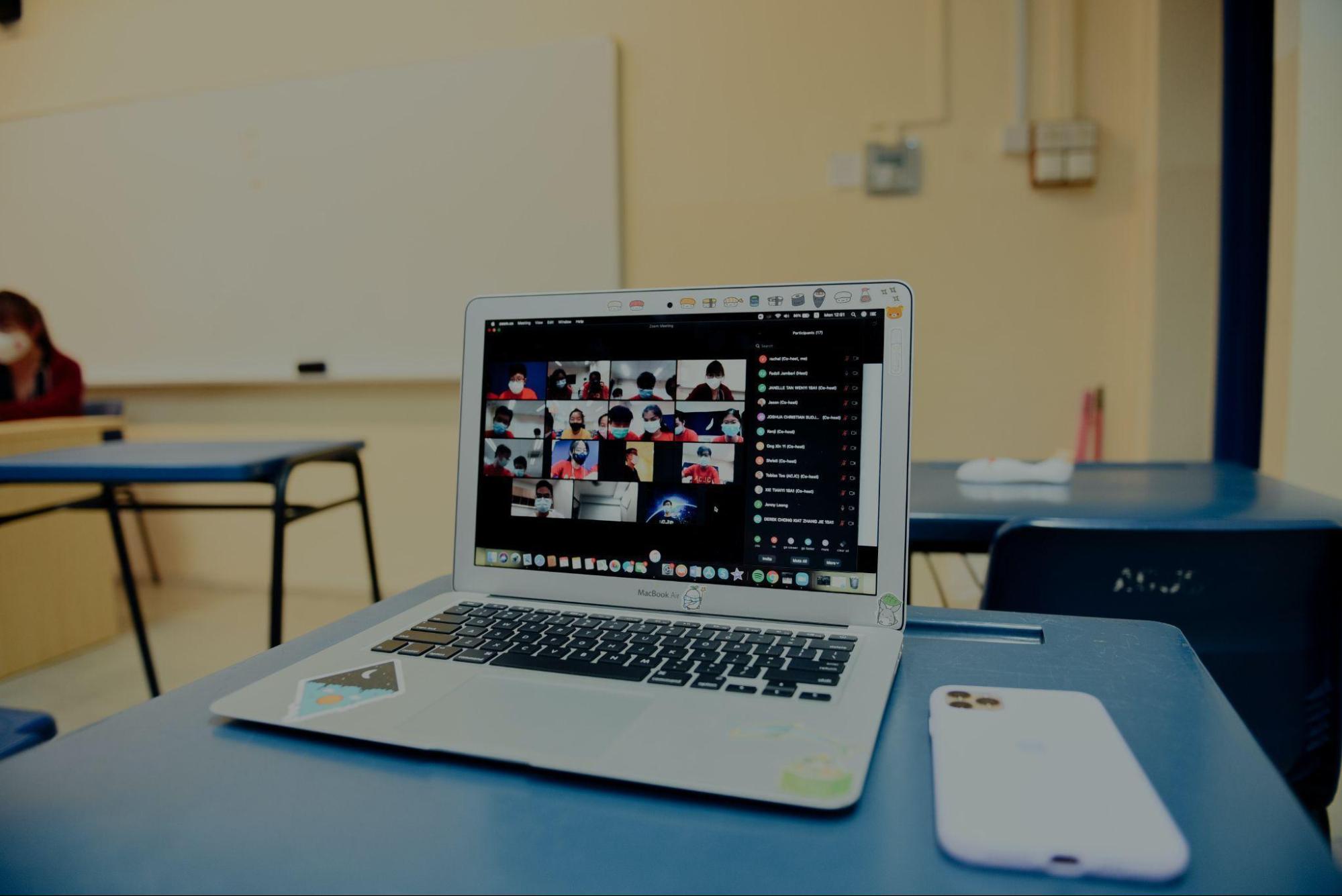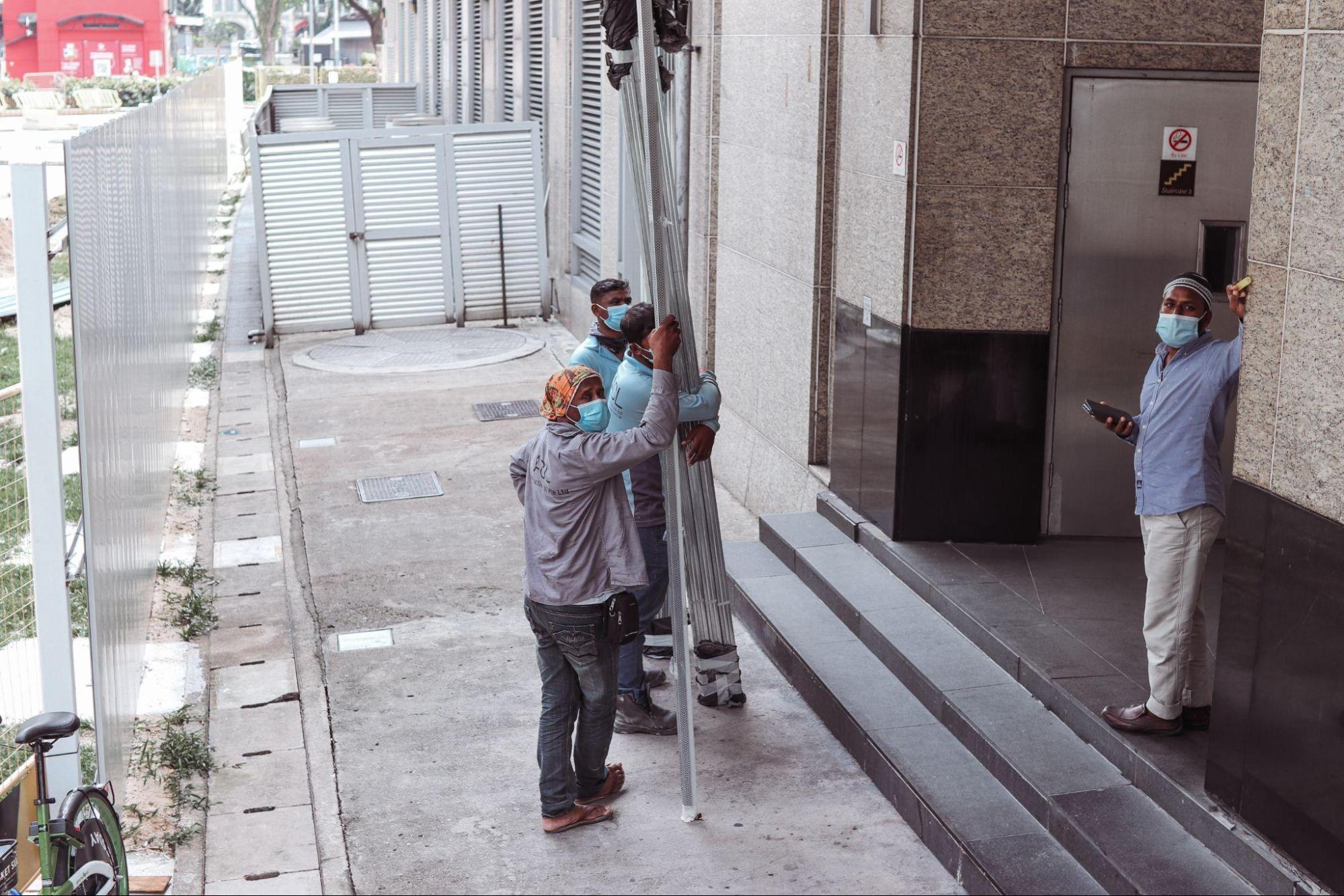Most adult Singaporeans spend the bulk of our time each week at work.
If you’ve ever wondered what fellow Singaporeans think about the meaning and significance of their work, you’re not alone.
We spoke to four different Singaporeans from different backgrounds and age groups about their honest thoughts on this topic.
Here’s what they said.
Is work merely transactional or is it for passion?
For 63-year-old teacher Susan (not her real name), work is definitely for passion.
“Meaning is important, otherwise the heavy workload will wear you down.”
Susan shared that she had converted from the pension scheme to the non-pension one in the 1980s as she wanted the freedom to be able to leave if the work wore her down and was unfulfilling.
She had seen enough teachers who stayed on their jobs for the sake of their pension and were bitter, and she didn’t want that for herself.
The fact that she has been teaching all her life as a Junior College teacher for the past 40 years is testament to her dedication and passion for her craft.
Likewise, 27-year-old Ahmadul Amin and 28-year-old Nigel Lopez agree that work is relational to them.
To Ahmadul, who is a freelance musician, work is his own brand and company.
Meaning and passion is important to him because he is not working for someone else’s success.
“I’m pursuing my music for myself. Even if I’m putting in the hours, I may not always be getting paid.”
Lopez, who is a partner at a concert promotion company, concurs, stating that work has and will always be relational to him.
“I believe it is difficult to build a career if it remains merely transactional, which will limit motivation to simply monetary gain. Having a fulfilling career that has greater meaning is key in driving motivation and achieving success. If work was merely transactional to me, I would’ve gone into the finance sector.”
On the other hand, 41-year-old Liam (not his real name), who works as an urban planner in an engineering consultancy, feels that work is both relational and transactional.
“As we spend most of our waking hours at work, we have to ask ourselves what we want to invest our time in and whether it is worth our while. But we must also recognise that we need money to survive and meaningful work won't always be there.”
What their work helps to achieve in society
Given that all four profiles share similar views on the relational nature of their work, it’s no surprise that they also believe that their work has a positive social impact on Singaporeans.
“Because of the nature of the subject I teach (General Paper), I have more opportunities to expose students to issues at the national, regional and global level and engage them in discussions. Some of these are controversial issues which students need to be more aware of, or are keen to talk about," shared Susan.
"Students are also taught resilience and life skills. We counsel students with emotional and other related issues and help them seek financial assistance, if necessary."
 Photo by lucas law on Unsplash
Photo by lucas law on Unsplash
Meanwhile, Ahmadul feels that working on his own music has encouraged more musicians to pursue their craft.
“If we have more local musicians pursuing and putting their music out, Singaporeans will have the chance to be exposed to our local talent.”
Lopez, who also works in the local music industry, agrees.
“I would like to think I help create core, positive memories for people by bringing their favourite artists to our tiny island. Music is such a key part of many people’s lives. Everyone has their favourite artists that they wish they could see live, and we make that happen. It’s always a joy to see the crowd smiling, singing along and just feeling the energy of people coming together to enjoy music.
Some of the concerts my company helps to promote have people from Malaysia, Philippines, Indonesia flying over just to see their favourite artists, and it gives them the opportunity to visit our country.
It is also many of the artists’ first time here, and it allows us to bring them around and experience Singaporean culture. It’s always a joy to see them try our food and be amazed at how good it is.”
As an urban planner, Liam works towards ensuring that facilities are provided for everywhere, and not only in certain locations.
He believes that his profession helps improve the living conditions of Singaporeans by proposing policies, regulations or plans to guide how development could take place.
“For instance, ensuring that there is sufficient space set aside for schools, parks and hospitals, as a city grows, or supporting more environmentally friendly development.”
 Photo by Esaias Tan on Unsplash
Photo by Esaias Tan on Unsplash
Liam also feels responsible for shaping Singapore’s urban environment well, and making sure that he leaves a better Singapore for the future generations.
But just how prevalent is this sentiment of shared responsibility and pursuit of common good amongst other Singaporeans?
Susan personally thinks that individualism is a growing problem in Singapore, which threatens the pursuit of common good.
“In a competitive society where people are so focused on excelling and achieving self-actualisation, it is difficult to consider others’ interest, especially when a trade-off is perceived.
These days, more students are involved in Values-in-Action (VIA), partly because it is mandatory in schools and also because it contributes to a more glowing portfolio.
Of course, there are also those who genuinely have the heart to serve. When they do participate, many recognise the value of volunteer work.
Yet the busyness of work and family commitments render it difficult to serve in the community when they enter the next phase of their life.
The stresses and frenetic pace of life prevent people from doing more to provide care and support for others.”
Having said this, she does feel that appealing to the people’s sense of justice can help as millennials and Gen Z-ers tend to feel more for social justice.
When it comes to the music industry, Lopez wishes the general public would be more supportive and aware of local musicians and the work that they put in to release music.
“The conversations surrounding this have been going around forever. While there has been change in the past 10 years with radio stations playing more local music, a lot more can be done in instilling pride amongst Singaporeans of music that hails from our country.”
 Photo by Alex wong on Unsplash
Photo by Alex wong on Unsplash
Like Lopez, Ahmadul shared similar sentiments.
“The general public should be more active in supporting our local music scene by listening to local music and investing time to watch local gigs. By doing so, we would have a healthy ecosystem to support our local music scene.”
Ensuring multiple pathways and definitions of success
Meaning and impact of work on society aside, there has also been substantial buzz about how we can ensure multiple pathways and definitions of success in Singapore.
This is especially the case as the world evolves and Singapore faces a more challenging internal and external environment.
Lopez feels that Singapore as a society needs to be more open-minded about non-standard career paths that are not in finance, law, computer science or medicine.
“While all of these roles are equally important, we tend to overlook professions that fall into the other categories such as engineering, humanities, social sciences and the arts.
Each of these pathways have a key part in shaping lives and cultivating a dynamic society within a country. If these roles disappear, we would not have an exciting life, things to look forward to or to be in awe about. There is purpose in everything.”
Liam agrees, stating that there needs to be a comprehensive transformation of society and systems.
“We need to acknowledge that we do not all need to be doctors/ lawyers/ bankers, and that we can have an enriching work life even working in a technical role. We also need to compensate the hard workers and hand workers well, as brought up by Professor Tommy Koh before.”
 Photo by Singapore Stock Photos on Unsplash
Photo by Singapore Stock Photos on Unsplash
One way this can be done is to “make plumbing and carpentry professions which require certification, and accord them higher pay so people will regard them as skilled workers who are as successful as other white collar workers,” shared Susan.
Upskilling and lifelong learning
“As I live, I learn.”
This is the motto of a school Susan once taught at, and a motto she personally subscribes to.
Susan shared that a few years after she retires, she may wish to do some part time work.
“Whether it is picking up a new hobby or learning a new skill, learning is fun, challenging even, and it will keep you alert. For the younger ones who can’t retire yet, it is crucial to keep learning to stay relevant at work.”
Similarly, Liam believes that “learning is lifelong and you never stop learning”.
He is currently using his SkillsFuture credits to pick up more knowledge on corporate sustainability, such as understanding carbon accounting, standards, etc.
Lopez is also trying to spend his SkillsFuture credits wisely, and thinks that it is a great programme that the government has introduced to promote upskilling.
“I’ve been meaning to take up courses in Digital Marketing to strengthen my skills in reaching out to key audiences for our concerts. Our world is constantly changing. Look how fast TikTok has exploded, and now BeReal is rapidly catching up.
Before you know it, another app might take over and we have to learn the tools from scratch. It’s always important to keep up to date with the latest trends within your industry to stay ahead and remain relevant.”
And he had some advice for those who may be on the fence about the idea of lifelong learning:
“Lifelong learning is important in keeping relevant in our ever-shifting society. It not only maintains, but also gives further purpose and meaning in your life. It keeps life exciting, and enables you to grow as a person tenfold. I would like to think I would still be seeking out new skills and knowledge at age 80.”
As all four profiles have shared, meaning and purpose in work is as important as the need to upskill, improve, and continually refine the pathways and definitions of success in Singapore.
Currently, the Forward Singapore exercise is being held, where Singaporeans can come together to examine our values and aspirations, build consensus, as well as work together to turn them into reality.
If you want to better Singapore and contribute meaningfully to society, consider sharing your views, suggestions and feedback here.
This sponsored article by MCCY made this writer evaluate the meaning and purpose of work.
Top image by LYCS Architecture on Unsplash
If you like what you read, follow us on Facebook, Instagram, Twitter and Telegram to get the latest updates.
